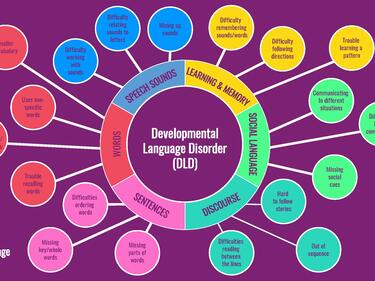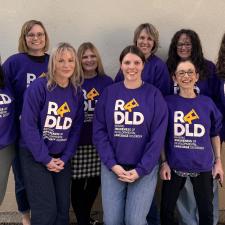
SLPs Speak Up for DLD
Have you ever heard of Developmental Language Disorder (DLD)? The Speech-Language Pathology (SLP) Department recently held a campaign to mark DLD Awareness Day on October 18th.
DLD is a neurodevelopmental communication disorder that impacts the understanding and/or formulation of language in the absence of any other biomedical condition, such as hearing loss or autism. It makes it difficult for a student to put thoughts into words and understand what others are saying. DLD affects speaking, listening, reading, writing, learning, and socializing, yet remains largely a hidden disorder because students with DLD may look just like their typically developing peers. In fact, it’s common enough that two kids in your class likely have DLD!
DLD can have serious impacts: people with DLD are 12 times more likely to have reading, spelling, and math difficulties combined (Young et al., 2002). As the Abbotsford School District’s 2024-2028 Strategic Plan contains goals concerning improved student success in literacy and numeracy, knowing the role that DLD could play in students’ academic success is critical.
In a language-based school system, students with DLD will have difficulty accessing the curriculum. Language forms the basis for understanding, organizing, and thinking about academic material. Students may also demonstrate difficulty with social language (staying on topic, taking turns in conversation, reading nonverbal cues), behaviour, and mental health. Sometimes, students with DLD might appear “unmotivated” or “unwilling” to do work. It makes sense that many of these students avoid work (think of the hands up for a bathroom break) when we consider what it must be like to struggle every day in front of peers. Now imagine navigating these struggles with a brain still in development.
Universal Design for Learning strategies that support students with DLD in the classroom include using visual supports, extra time to process language, chunking information, breaking down tasks, providing background and contextual information, repetition of language (e.g., recapping previous learning), and modelling academic vocabulary throughout the lessons. Contact the Speech-Language Pathologist who services your school for more information and support.
For simple actions that can support your students with DLD, check out @RADLDcam on Instagram.
SPEECH-LANGUAGE PATHOLOGY DEPARTMENT
Learning Support Services
